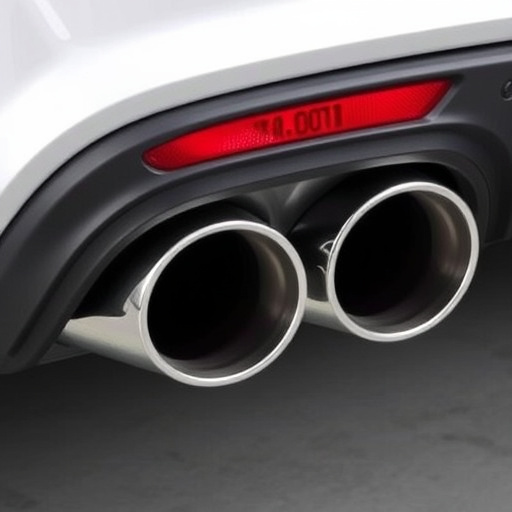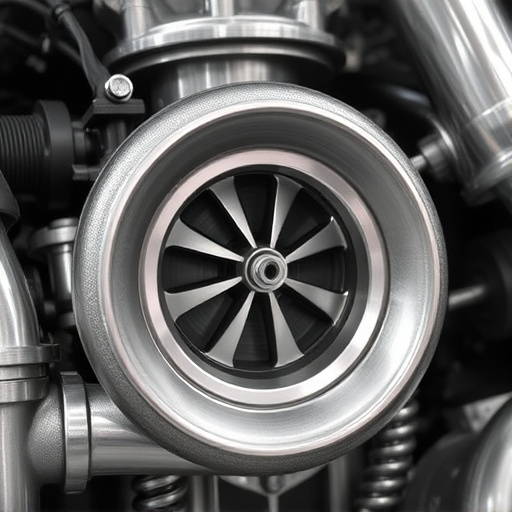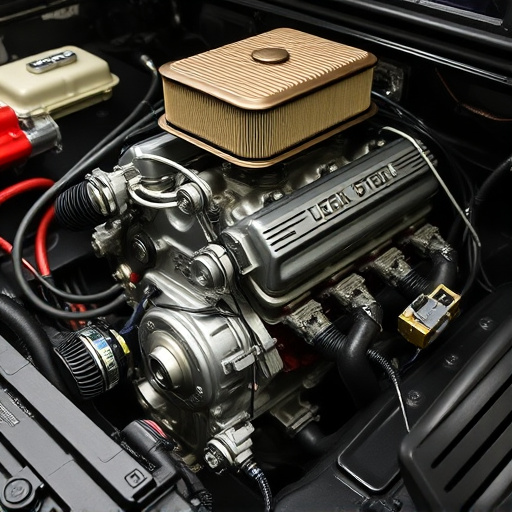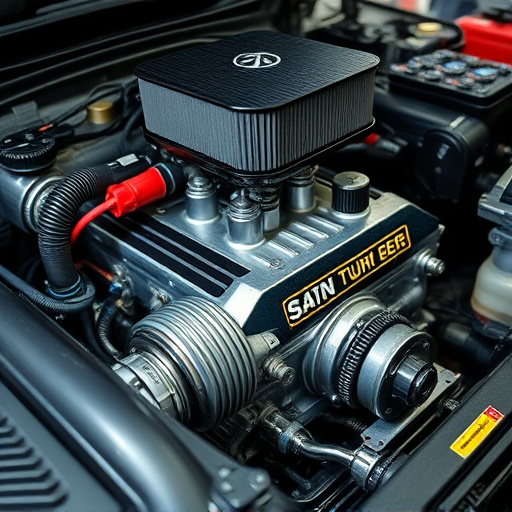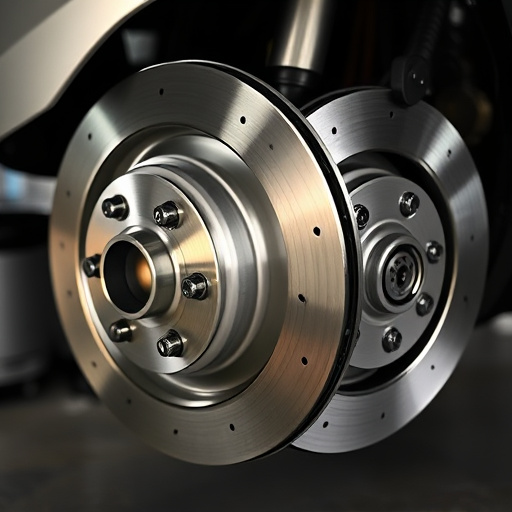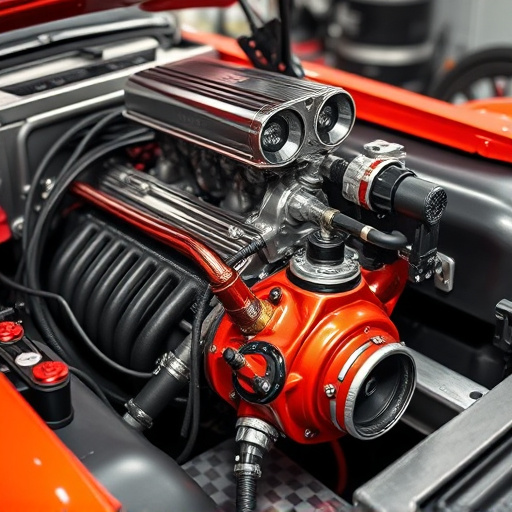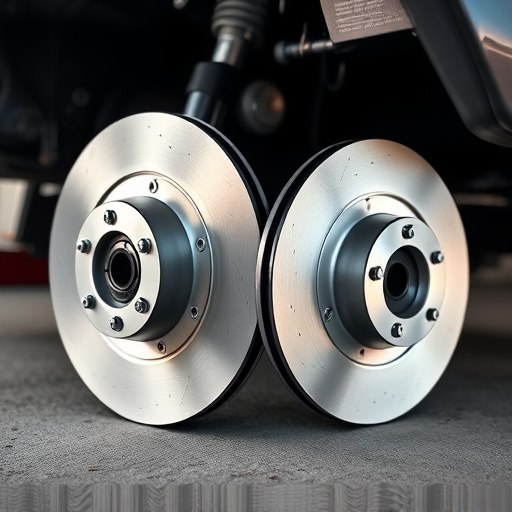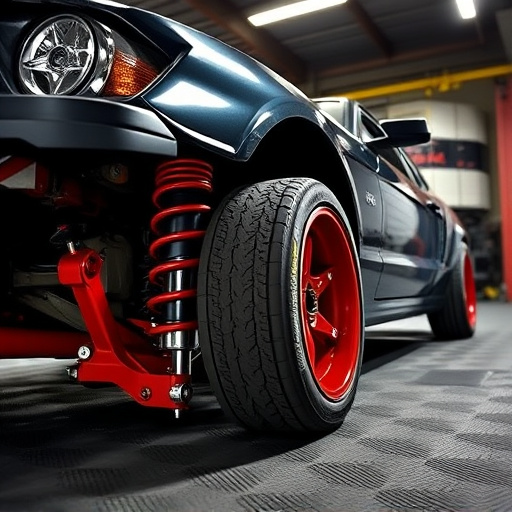Exhaust systems for cars are dual-purpose components, reducing noise and protecting engines by expelling gases, preventing backpressure, and maintaining optimal temperatures. Regular maintenance with accessories like air filter and coilover kits enhances performance. Proper upkeep ensures engine health, prevents damage, improves fuel efficiency, reduces emissions, and extends component lifespans, ultimately contributing to sustained vehicle performance.
Exhaust systems are not just about silencing the roar of your car’s engine; they play a pivotal role in maintaining its overall health and longevity. By facilitating efficient gas expulsion, these systems prevent backpressure that could cause internal damage. Regular maintenance of exhaust systems for cars is crucial, as it addresses common issues like leaks, corrosion, and blockages, ensuring optimal performance and extending the lifespan of your engine.
- Exhaust Systems: Silencing Noise, Preventing Damage
- Engine Health: The Role of Efficient Exhaust Flow
- Common Issues & Benefits of Regular Maintenance
Exhaust Systems: Silencing Noise, Preventing Damage
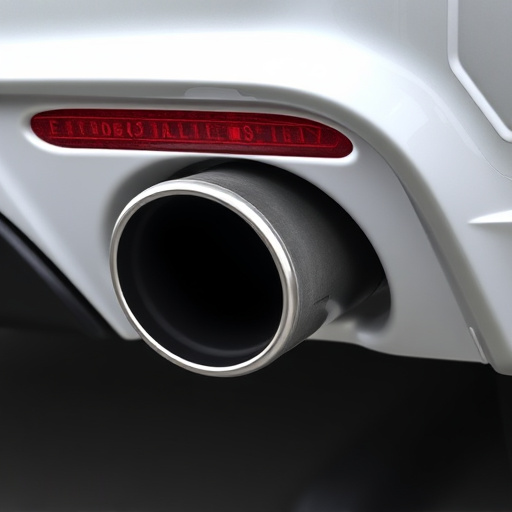
Exhaust systems for cars are designed to do more than just reduce noise levels. While silencing the engine’s roar is a significant benefit, their primary role is crucial in preventing potential damage to the vehicle’s internal components. The exhaust system acts as a vital conduit, expelling burned gases from the engine while maintaining optimal operating temperatures. By facilitating efficient gas flow, it ensures that harmful byproducts are swiftly removed, preventing backpressure that could strain the engine.
Moreover, exhaust mufflers play a critical role in this process. They dampen sound waves, making the vehicle quieter without compromising the exhaust system’s overall functionality. Alongside exhaust systems, other car maintenance components like air filter kits and coilover kits can enhance performance further. However, the core function of an exhaust system remains to safeguard the engine from potential damage, ensuring smooth operation and extending the lifespan of these essential automotive parts.
Engine Health: The Role of Efficient Exhaust Flow
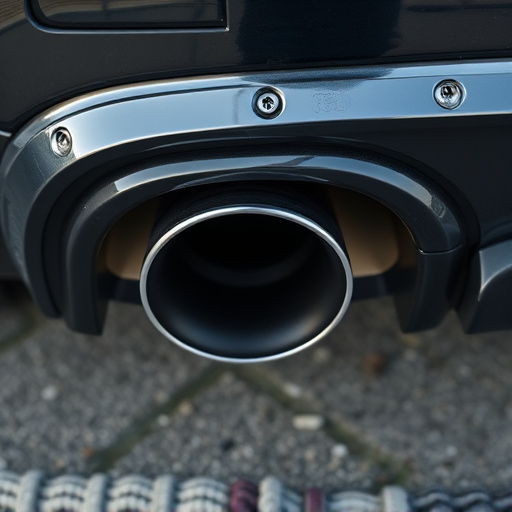
Maintaining optimal engine health is paramount for any vehicle’s performance and longevity. One often-overlooked aspect in this pursuit is the role of efficient exhaust flow, facilitated primarily by well-designed and maintained exhaust systems for cars. The engine, as a powerhouse, relies on an intricate balance of intake and expulsion of gases to function effectively. Exhaust systems play a crucial part in this process by swiftly removing spent gases from the combustion chamber, making way for fresh air to enter via cold air intakes.
This continuous exchange is vital for preventing internal damage to critical components like brake rotors and maintaining the overall efficiency of air intake systems. By ensuring smooth exhaust flow, these systems prevent engine overheating, which can lead to serious wear and tear. Moreover, efficient exhaust flow contributes to better fuel combustion, enhancing power output while simultaneously reducing emissions, thereby promoting both environmental sustainability and sustained engine health.
Common Issues & Benefits of Regular Maintenance
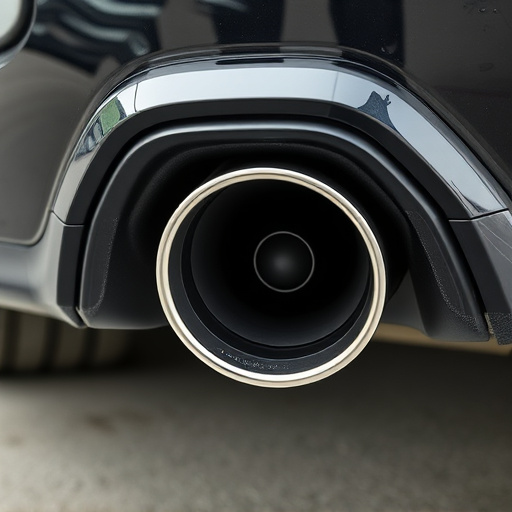
Exhaust systems play a vital role in keeping your car running smoothly and efficiently. Regular maintenance is key to preventing common issues that can lead to significant engine damage. Ignoring routine checks can result in problems like backpressure buildup, which occurs when exhaust gases cannot flow freely through the system. This can cause excessive wear on critical components, leading to costly repairs or even engine failure.
Benefits of regular exhaust system maintenance include improved fuel efficiency, reduced emissions, and enhanced performance. By addressing issues early, drivers can also avoid the need for expensive upgrades like suspension kits or replacement intake components. A well-maintained exhaust system ensures optimal gas flow, allowing the engine to breathe better and run cooler, ultimately contributing to a longer lifespan of both exhaust components and other essential suspension parts.
Exhaust systems are not just about reducing noise pollution; they play a pivotal role in maintaining engine health. By efficiently directing combustion gases away from the engine, these systems prevent damage caused by excessive heat and pressure. Regular maintenance of exhaust components is crucial, addressing common issues like leaks, corrosion, and clogged converters. Investing in top-quality exhaust systems for cars not only enhances performance but also ensures longer engine life, making it a vital aspect of vehicle care that owners should never overlook.


